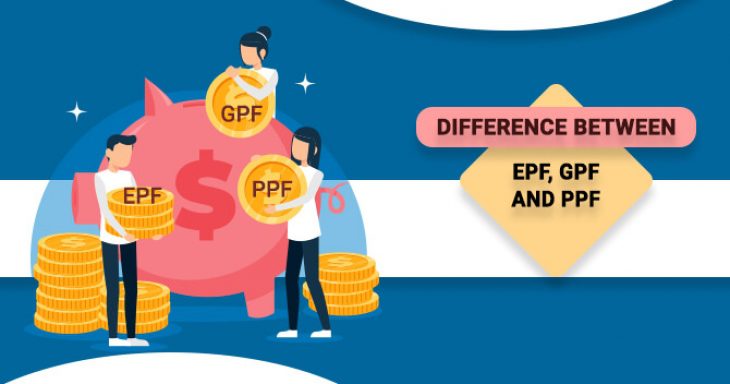Employees’ Provident Fund (EPF), Public Provident Fund (PPF), and General Provident Fund (GPF) are the best investment options. Sometimes people get confused about their names. But these three schemes are different. We are giving you information about the three investment options in this article.
Eligibility: EPF (Employees Provident Fund) is for salaried persons only. It is a compulsory savings scheme that applies to employees of a company with more than 20 employees whose salary exceeds the prescribed minimum amount.
PPF (Public Provident Fund): It is offered to all on behalf of banks and post offices, it does not matter to be salaried.
Contribution: Investment in EPF is mandatory for salaried. It is credited to 12% of basic and DA for investment in the EPF account.
PPF: This is a voluntary retirement scheme. In a financial year, you are allowed to make the minimum deposit amount of Rs 500 and a maximum of Rs 1.5 lakh. It can be contributed in lump sum or installments.
Tax exemption: The amount you get on your EPF maturity is exempted only if you have a track record of at least five years of continuous job.
PPF: PPF enjoys EEE tax status. This means that your PPF investment is tax-free at all levels, tax, accumulation, and maturity.
Interest Rate: Epfo declares interest rates on EPF every year. It was fixed at 8.55% for 2017-18. PPF interest rates vary on a 10-year government bond yield and quarterly basis. The PPF interest rate is being received at the rate of 8% in the last quarter of 2018-19.
Lock-in period: The EPF account has a lock-in period of five years. PPF has a lock-in period of 15 years.
General Provident Fund, i.e., GPF: GPF account is a type of provident fund. At present, only government employees can deposit money. The employee can also withdraw this money at the time of need. The good thing is that the money deposited in it is received by a Government servant at the time of retirement.
Read also: Myths about money investment that need to be busted
Beware! SBI customers, or else you will lose your all money from account
How to Check the Bank account balance without leaving home
Image credit: corpbiz


